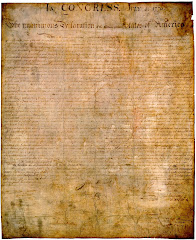 Top Democratic and Republican leaders absolutely believe that Iran is planning to develop nuclear weapons. And one of their seemingly strongest arguments involves a process of deduction. Since Iran has so much oil, they argue, why develop nuclear power?
Top Democratic and Republican leaders absolutely believe that Iran is planning to develop nuclear weapons. And one of their seemingly strongest arguments involves a process of deduction. Since Iran has so much oil, they argue, why develop nuclear power?James Woolsey typifies the view. The director of the CIA under both George Bush (the elder) and Bill Clinton said, “There is no underlying reason for one of the greatest oil producers in the world to need to get into the nuclear [energy] business ... unless what they want to do is train and produce people and an infrastructure that can have highly enriched uranium or plutonium, fissionable material for nuclear weapons."¹
In an op-ed commentary, former secretary of state Henry Kissinger wrote, “For a major oil producer such as Iran, nuclear energy is a wasteful use of resources,” a position later cited approvingly by the Bush administration.²
But U.S. leaders are engaging in a massive case of collective amnesia, or perhaps more accurately, intentional misdirection. In the 1970s the United States encouraged Iran to develop nuclear power precisely because Iran will eventually run out of oil.
A declassified document from President Gerald Ford’s administration, for which Kissinger was secretary of state, supported Iran’s push for nuclear power. The document noted that Tehran should “prepare against the time—about 15 years in the future—when Iranian oil production is expected to decline sharply."³
The United States ultimately planned to sell billions of dollars’ worth of nuclear reactors, spare parts, and nuclear fuel to Iran. Muhammad Sahimi, a professor and former department chair of the Chemical and Petroleum Engineering Department at the University of Southern California, told me that Kissinger thought “it was in the U.S. national interest, both economic and security interest, to have such close relations in terms of nuclear power.”4
The shah even periodically hinted that he wanted Iran to build nuclear weapons. In June 1974, the shah proclaimed that Iran would have nuclear weapons “without a doubt and sooner than one would think.”5 Iranian embassy officials in France later denied the shah made those remarks, and the shah disowned them. But a few months later, the shah noted that Iran “has no intention of acquiring nuclear weapons but if small states began building them, then Iran might have to reconsider its policy.”6
If an Iranian leader made such statements today, the United States and Israel would denounce them as proof of nefarious intent. They might well threaten military action if Iran didn’t immediately halt its nuclear buildup. At the time, however, the comments caused no ripples in Washington or Tel Aviv because the shah was a staunch ally of both. Asked to comment on his contradictory views then and now, Kissinger said, “They were an allied country, and this was a commercial transaction. We didn’t address the question of them one day moving toward nuclear weapons.”7
Kissinger should have added that consistency has never been a strong point of U.S. foreign policy.
More...






